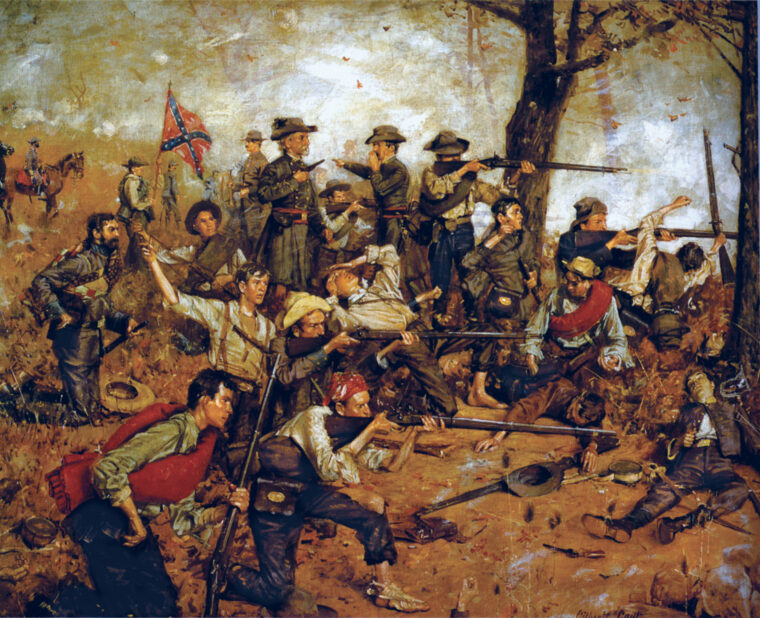
Militia
Battle of Belmont: Ulysses S. Grant’s First Battle
By Donald J. Roberts IIWhen the Civil War started in 1861, there were only two officers in the Union Army who had commanded a force in battle larger than a brigade. Read more

Militia
When the Civil War started in 1861, there were only two officers in the Union Army who had commanded a force in battle larger than a brigade. Read more
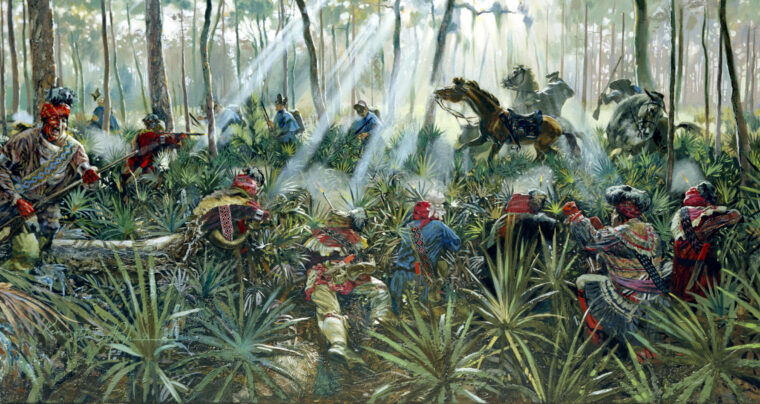
Militia
The road that stretched through the pine and palmetto woodlands of central Florida was void of the usual animal chitter-chatter on the cool morning of December 28, 1835. Read more
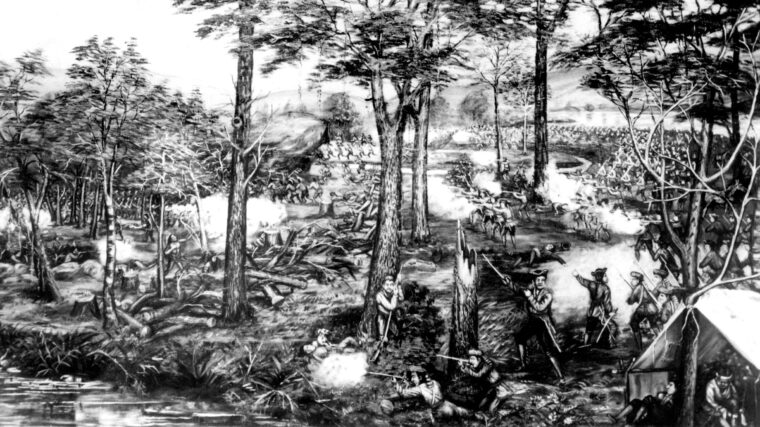
Militia
In the lengthening shadows of a late October afternoon, a column of tired marchers attired in dusty, fringed hunting dress emerged from the trees along the north bank of the Kanawha River, raising an exhilarating shout upon sighting its confluence with the Ohio. Read more
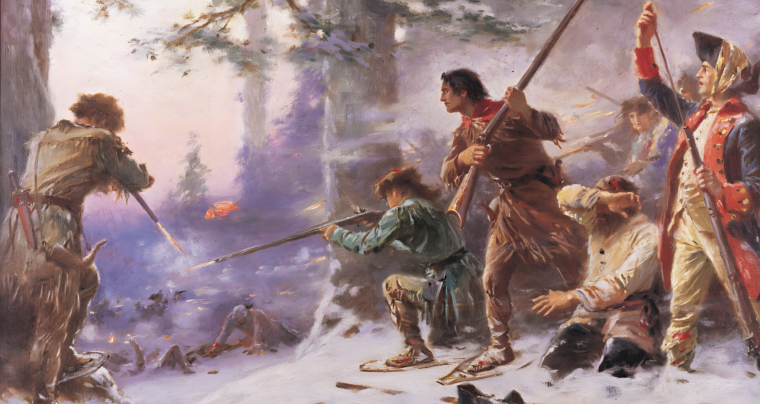
Militia
In the fall of 1755, England and France were again at war for control of North America. The French believed that New France extended from Canada to Louisiana. Read more
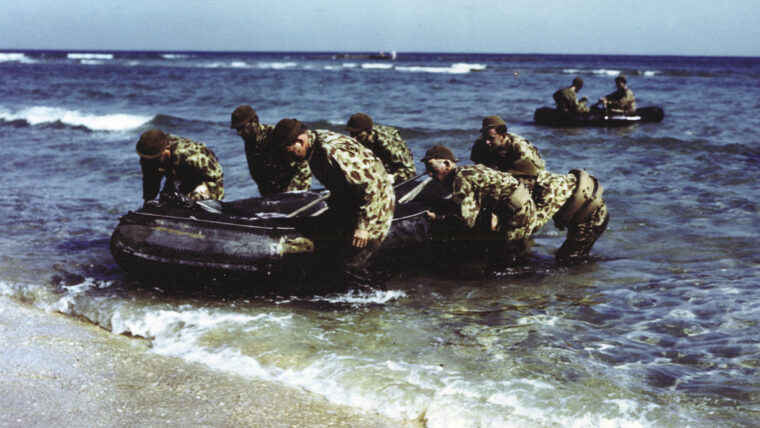
Militia
The three rubber dinghies struggled through the rough surf in the pitch black night toward an inhospitable stretch of rocky beach. Read more
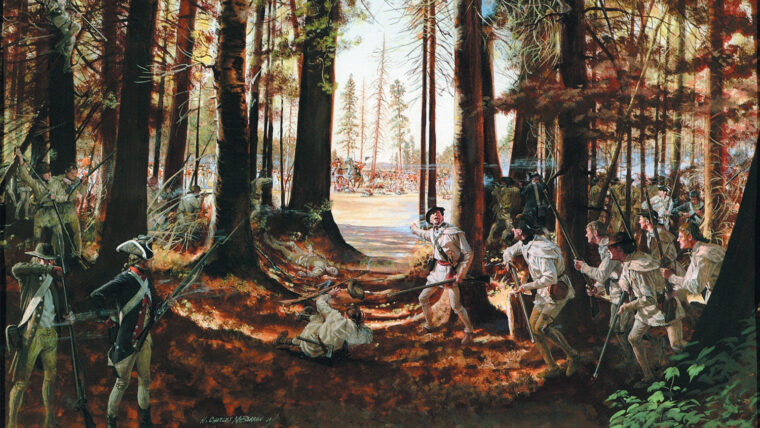
Militia
By the mid-1700’s, the American long rifle had acquired an almost supernatural reputation. To the British troops who were unfortunate enough to come up against it in combat during the Revolutionary War, the rifle was more an affliction than a weapon. Read more

Militia
From within the walled city of Nördlingen in the Upper Palatinate, a lone rocket arced slowly skyward on the night of September 3, 1634. Read more

Militia
Of all the generals who fought on the Patriot side during the American Revolution, none was more renowned than New York City native William Alexander, better known to his contemporaries as “Lord Stirling.” Read more
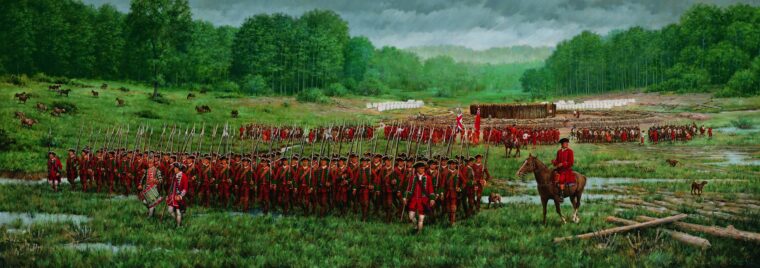
Militia
George Washington looked down at the surrender documents. They were soaked from pouring rain and the ink was splotched. Read more
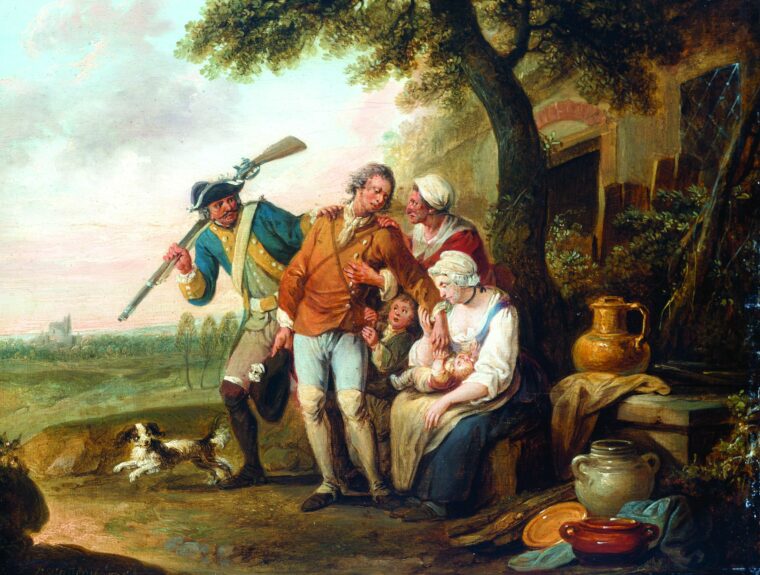
Militia
The call of a nation on its civilian population either to create a military force or to augment a standing army is virtually as old as civilization itself. Read more
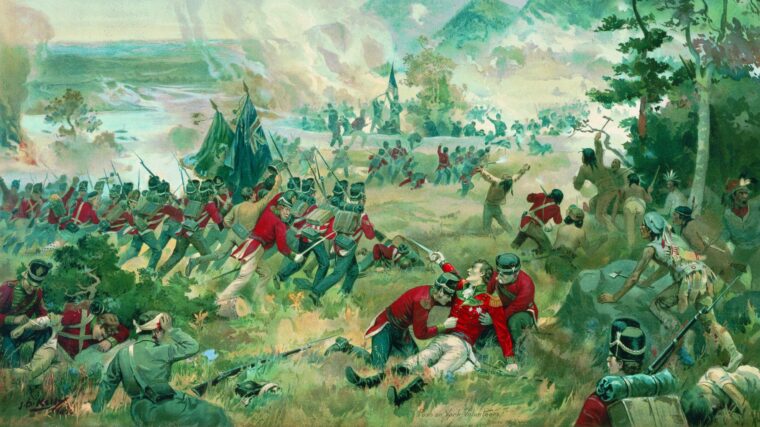
Militia
In June 1812, the United States, provoked by arrogant British actions on the high seas and its support of hostile Indians in the Northwest Territories, declared war on Great Britain and immediately began planning an invasion of British-held Canada. Read more
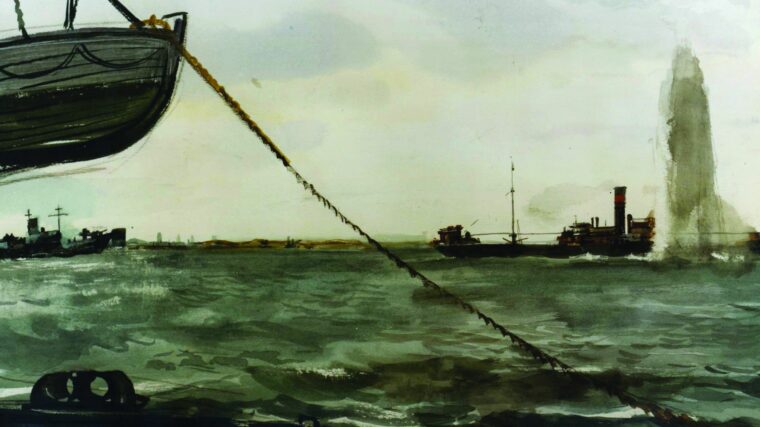
Militia
Early in World War II, a bitter joke circulated within the Soviet military. It ran, “What is the first thing Russia does when war is declared? Read more
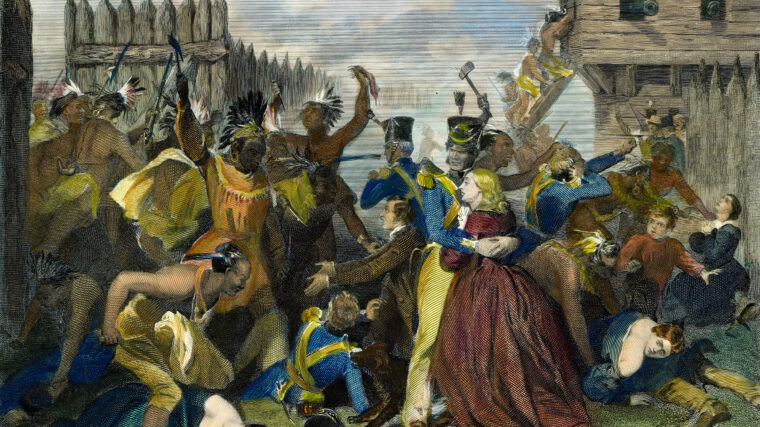
Militia
In the late summer of 1813, some 550 men, women, and children took refuge within a small wilderness outpost and waited for the worst. Read more
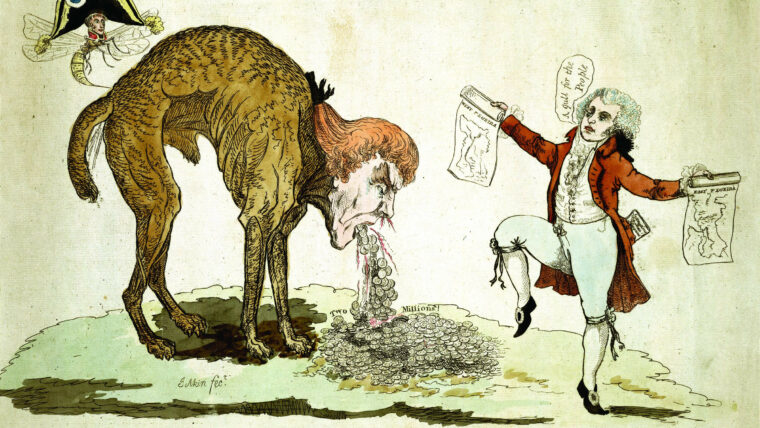
Militia
Almost a decade after winning the Revolutionary War against Great Britain, the youthful United States was determined to expand its territorial boundaries and become a truly continental nation. Read more
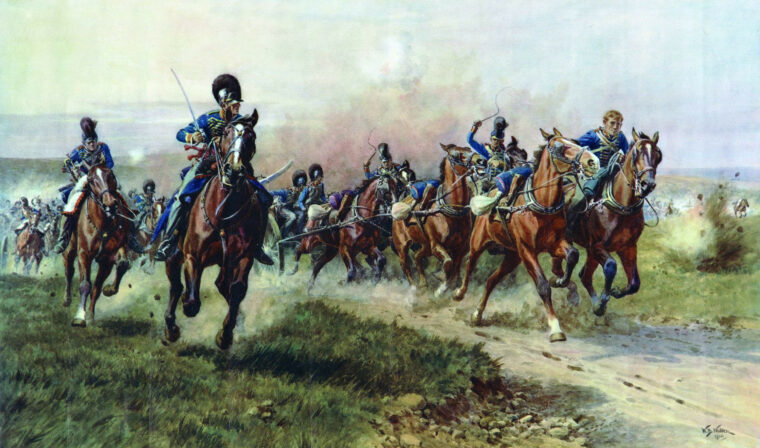
Militia
It had been a brutal winter for the French Army of Portugal. War and hunger had haunted the occupiers, causing their number to dwindle by the thousands. Read more
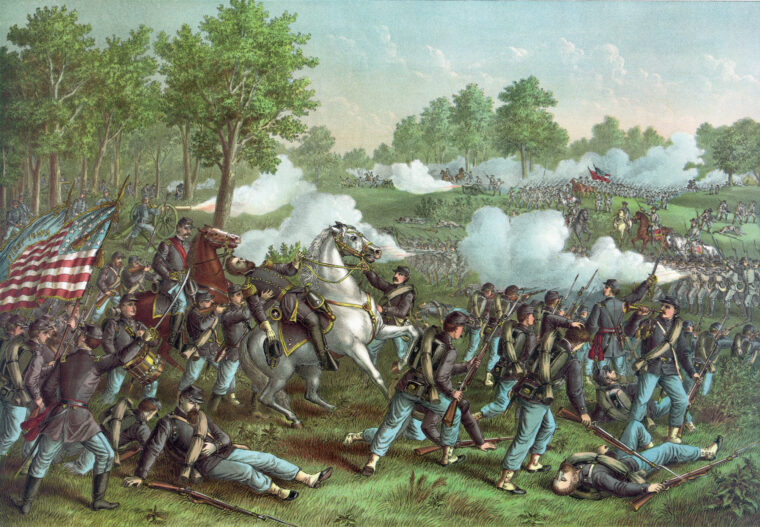
Militia
At the beginning of 1861, Missouri was in turmoil. A slave state since its inception in 1820, Missouri had grown increasingly tied to urban industry. Read more
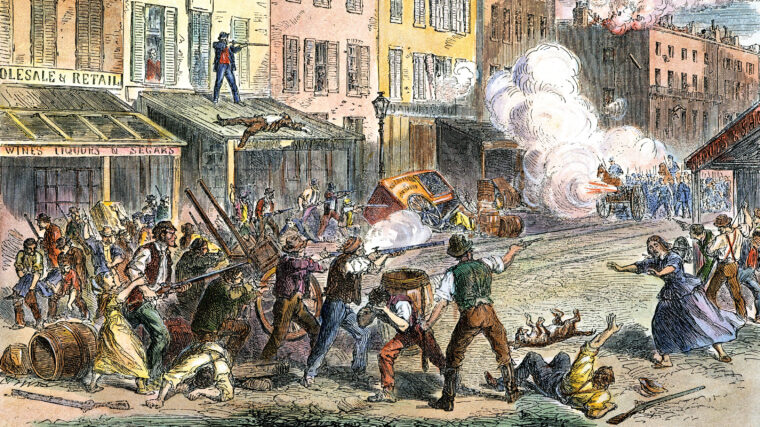
Militia
For four breathlessly hot days in mid-July 1863, New York City became the northernmost battleground of the Civil War. Read more
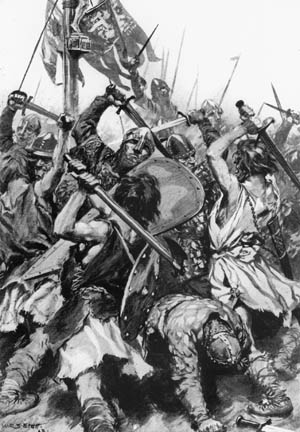
Militia
“To be a knight was to be potentially a Lord or Lordling … and a fate worse than death, was to set one’s hand to the plow.” Read more
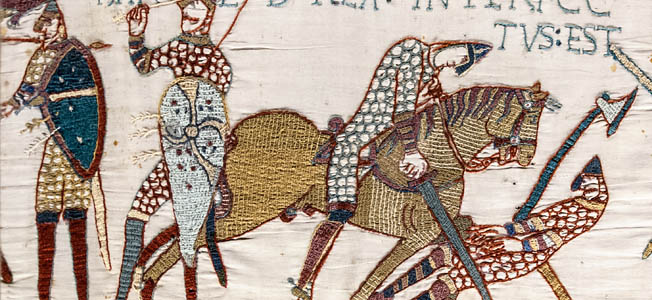
Militia
Numerous pictorial representations show us the arms and armor of the 12th-century Anglo-Norman knight, the most famous being the Bayeux Tapestry. Read more
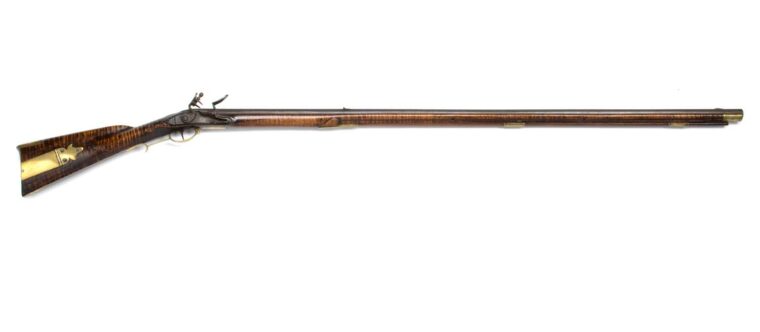
Militia
The battle at Kings Mountain in October 1780 was the only clash of the American Revolution in which the entire colonial force was armed with American long rifles. Read more